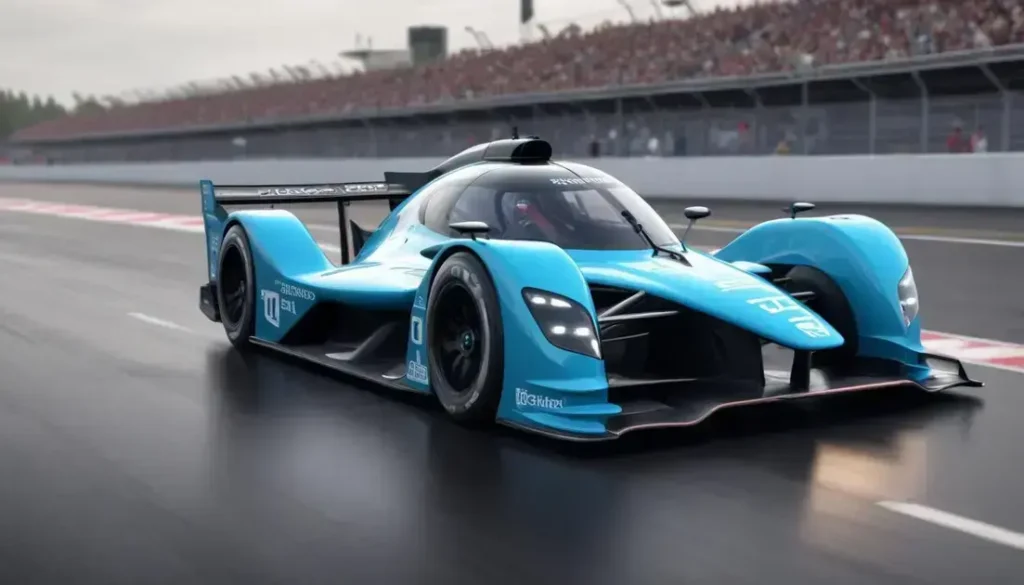Electric mobility in the UK is rapidly advancing due to government support, improved charging infrastructure, and innovations in battery technology, all aimed at promoting the adoption of electric vehicles and achieving sustainability goals.
The introduction of the Electroverse Business Payments Card marks a crucial step in enhancing electric mobility solutions for UK fleets. Curious about how this can streamline operations?
Overview of Octopus Energy and Enfuce
Octopus Energy is a prominent player in the UK energy market, renowned for its commitment to renewable energy solutions and innovative technology. The company’s mission revolves around providing customers with green energy that is both affordable and sustainable. With a focus on transparency and customer satisfaction, Octopus has made significant strides in reshaping how energy is consumed.
Enfuce, a leading Finnish fintech company, pairs seamlessly with Octopus Energy to enhance payment solutions for electric vehicle (EV) users. Their collaboration aims to simplify transactions within the growing electric mobility sector. By leveraging technology, they provide tools that not only ease payment processes but also empower businesses to manage their energy consumption effectively.
This partnership is crucial, especially as the demand for EVs increases and businesses strive towards sustainability. Octopus Energy and Enfuce are at the forefront of this change, facilitating a smoother transition to electric mobility for fleets across the UK. Their joint efforts contribute directly to the goals of reducing carbon footprints and promoting eco-friendly practices within fleet management.
Introduction to Electroverse Business Payments Card
The Electroverse Business Payments Card represents a significant advancement in the way businesses manage their energy expenses, particularly for electric vehicles (EVs). Designed specifically for fleet operators, this card provides a streamlined approach to handling payments across various charging stations. This innovative solution not only enhances efficiency but also simplifies the complexities of fleet management.
By using the Electroverse card, fleet managers can benefit from real-time tracking of energy expenditure, allowing for better budgeting and financial planning. The card integrates seamlessly into existing payment systems, making it an attractive option for those looking to transition towards sustainable energy solutions without significant upfront costs.
Moreover, the Electroverse card is equipped with features that ensure users can easily monitor and control their spending. This proactive approach allows businesses to adhere to their sustainability goals by optimising energy consumption. As the demand for EVs increases, tools like the Electroverse card become crucial in facilitating a smoother transition to electric mobility.
Fleet operators can take advantage of tailored insights and analytics provided through the card. Such features empower businesses to make informed decisions on their energy use, ensuring they remain competitive in an ever-evolving market focused on green practices.
Benefits of the payment card for fleet operators
The Electroverse Business Payments Card offers numerous advantages tailored for fleet operators looking to enhance their management of electric vehicle (EV) expenses. With this card, fleet managers gain access to simplified payment processes across various charging stations, which makes managing energy expenses significantly easier.
Moreover, the card provides real-time tracking of energy usage, allowing businesses to monitor their spending and optimise budgets effectively. This feature is crucial as it helps fleet operators identify cost-effective charging locations and manage energy consumption efficiently.
Another key benefit is the enhanced spend control that the card facilitates. Fleet managers can set limits and track individual driver expenses, promoting accountability and ensuring that the fleet operations align with sustainability goals. This not only streamlines financial oversight but also contributes to the overall effectiveness of the fleet.
Additionally, the integration of advanced analytics into the payment card system offers invaluable insights into energy usage patterns. Fleet operators can leverage this data for strategic decision-making, enabling them to refine their energy consumption strategies and enhance sustainability practices within their operations.
Overall, the Electroverse card positions fleet operators at the forefront of the transition to sustainable mobility solutions, making it an essential tool in today’s eco-conscious marketplace.
How the card simplifies expense management
The Electroverse Business Payments Card significantly simplifies expense management for fleet operators, streamlining the way they handle energy costs associated with electric vehicle (EV) usage. With this card, the entire payment process is consolidated into a single, easy-to-manage platform, reducing the hassles often associated with tracking multiple invoices and receipts.
Each transaction made with the card is automatically recorded, providing fleet managers with immediate access to data on energy expenditure. This automated tracking eliminates the need for manual entry, minimizing errors and saving time. Fleet operators can quickly assess their energy usage across various charging stations, enabling informed decision-making.
Additionally, the ability to set spending limits and monitor usage in real-time empowers fleet managers. They can enforce budgeting guidelines more effectively, preventing overspending and promoting accountability among drivers. This feature aids in creating a more prudent and sustainable energy consumption strategy.
The card also supports multiple payment options, making it adaptable to the various needs of businesses. This flexibility allows fleet operators to choose the most cost-effective charging solutions based on their operational requirements. Overall, the Electroverse card transforms expense management into a seamless experience, supporting fleet operators in achieving their sustainability goals.
Real-time spend controls and monitoring
The Electroverse Business Payments Card comes equipped with essential features for real-time spend controls and monitoring, providing fleet operators with unprecedented oversight of their energy expenditures. This functionality allows managers to track spending as it happens, ensuring they remain within budget and adhere to financial guidelines.
Real-time monitoring means that any charges made at charging stations are immediately reflected in the system. Fleet managers can easily view transaction details, allowing them to identify trends and patterns in energy consumption. This capability is crucial for making informed decisions about future energy use and fleet management strategies.
Moreover, the card enables operators to set specific spending limits for individual drivers or vehicles. This built-in control mechanism helps to foster accountability among drivers, as they understand the financial constraints within which they must operate. Such measures can prevent overspending and enable more effective financial planning.
The alerts generated by the system inform managers if a spending threshold is approached or exceeded, allowing for proactive adjustments. This awareness ensures that fleet operators can address discrepancies before they escalate into significant financial issues. Overall, the robust spending controls embedded in the Electroverse card are crucial for maintaining sustainability and operational efficiency within electric vehicle fleets.
The significance of seamless payment systems
The importance of seamless payment systems in the electric vehicle (EV) sector cannot be overstated. For fleet operators, these systems provide a crucial framework that simplifies transactions and enhances operational efficiency. A seamless payment system ensures that all charging stations are easily accessible, allowing drivers to charge without the hassle of complex payment methods.
With the Electroverse Business Payments Card, fleet managers can process payments quickly and efficiently. This capability reduces downtime during refuelling, ensuring that fleets remain operational and productive. The convenience of a unified payment system also encourages fleet operators to fully embrace electric mobility, knowing that they can manage costs effectively.
Furthermore, effective payment systems enable better financial monitoring and budgeting. Fleet operators can track expenses in real-time, gaining insights into energy consumption patterns and identifying cost-saving opportunities. This transparency is vital for companies aiming to achieve sustainability targets while maintaining financial health.
Seamless payment solutions also enhance customer satisfaction. Drivers benefit from a smooth experience, as they do not encounter roadblocks when charging their vehicles. This positive experience fosters loyalty and encourages the wider adoption of electric vehicles in business fleets, ultimately contributing to a greener future.
Challenges in EV adoption in the UK
The adoption of electric vehicles (EVs) in the UK faces several significant challenges that must be addressed to facilitate a smoother transition to greener transportation. One of the primary obstacles is the infrastructure for charging stations. Although the number of charging points is increasing, many areas still lack sufficient access, making it difficult for drivers to charge their vehicles conveniently.
Another challenge is the initial cost of EVs. While prices are decreasing, electric vehicles can be more expensive than their petrol or diesel counterparts. This price gap can deter potential buyers, especially businesses considering fleet transitions.
Additionally, there is a lack of awareness and understanding of the benefits of EVs among consumers and fleet operators. Many people are still unsure about the advantages of switching to electric, which can hinder adoption rates. Education and marketing efforts are essential to inform the public about the long-term savings and environmental benefits associated with electric vehicles.
Furthermore, concerns over battery range and performance can make potential buyers hesitant. The fear of running out of charge, especially for those in rural areas or who frequently undertake long journeys, remains a barrier. Addressing these concerns and improving public perception is crucial for fostering greater acceptance of EV technology in the UK.
Role of collaborations in reaching net zero
Collaborations play a vital role in helping organisations achieve net zero emissions, especially in the context of the electric vehicle (EV) sector. By partnering with various stakeholders, including government entities, businesses, and non-profit organisations, companies can share resources and expertise to drive impactful change.
For instance, collaborations between energy providers and automotive manufacturers can lead to the development of innovative charging infrastructure. This ensures widespread accessibility to charging points, making it easier for consumers and fleet operators to transition to electric mobility. Additionally, such partnerships can facilitate the integration of renewable energy sources into the grid, further supporting sustainability initiatives.
Furthermore, industry alliances focused on research and development can accelerate the creation of cleaner technologies. When companies work together, they can share insights and funding to develop advanced battery technologies, which enhance the range and performance of EVs, making them more appealing to consumers and businesses alike.
Public-private partnerships are particularly important in implementing policies that promote electric mobility and reduce overall emissions. These collaborations can result in effective incentives for consumers, such as tax breaks and subsidies that encourage the adoption of electric vehicles. Ultimately, fostering collaborative efforts across sectors is crucial for driving the necessary changes that will lead to a sustainable, net-zero future.
Sustainability impact of the partnership
The partnership between Octopus Energy and Enfuce holds significant potential for enhancing sustainability in the electric vehicle (EV) sector. By collaborating, these two organisations can drive initiatives that reduce carbon emissions and promote renewable energy usage. Their joint effort focuses on providing efficient payment solutions that encourage the adoption of EVs, ultimately contributing to a greener environment.
One of the key sustainability impacts of this partnership is the facilitation of widespread electric mobility. By streamlining payment processes for charging stations, more fleet operators may transition to electric vehicles. This transition is crucial for meeting net-zero emissions targets and combating climate change.
Moreover, the collaboration promotes the use of renewable energy sources in powering charging infrastructures. By encouraging electric mobility backed by green energy, the partnership helps ensure that the shift towards EVs is aligned with overall sustainability efforts and reduces reliance on fossil fuels.
Furthermore, through shared data and insights, both companies can better understand the energy consumption patterns of EV users. This information can inform future strategies aimed at optimising energy efficiency, maximising resource utilisation, and ultimately lowering the environmental impact of transportation sectors.
Future of electric mobility in the UK
The future of electric mobility in the UK is poised for significant growth and transformation. As government policies push for greener transportation solutions, the adoption of electric vehicles (EVs) is expected to surge. This shift is further stimulated by advancements in charging infrastructure, making it more convenient for users to charge their vehicles.
Moreover, innovations in battery technology play a crucial role in enhancing the appeal of electric mobility. Improved battery efficiency and reduced charging times are key factors that will encourage more consumers and businesses to transition to electric vehicles. With ongoing research and development focused on these technologies, the range and performance of EVs are set to improve significantly, addressing existing consumer concerns.
In addition, the emergence of smart energy solutions will facilitate a more integrated approach to electric mobility. Systems that connect EVs to renewable energy sources can help create a sustainable model for charging. This approach not only reduces dependency on fossil fuels but also contributes to stabilising energy costs.
Finally, the role of partnerships among tech companies, automotive manufacturers, and public sector entities will be essential in shaping the future landscape. Collaborative efforts to promote electric mobility will help ensure that the transition occurs smoothly and effectively, paving the way for a cleaner, more sustainable transportation system.
What Lies Ahead for Electric Mobility
The journey towards electric mobility in the UK is an exciting venture that promises to reshape the transportation landscape. Through advances in technology, improved charging infrastructure, and strong collaborations, the future of electric vehicles looks bright.
As businesses and consumers embrace electric mobility, we can expect a significant decrease in carbon emissions and a stronger push towards sustainability. The combined efforts of the public and private sectors will facilitate a smoother transition and encourage widespread adoption.
Ultimately, the future of electric mobility is not just about vehicles; it is about creating a cleaner, greener planet for generations to come. By supporting this transition, each of us can play a part in making a difference. Embrace the change and be a part of the electric revolution!
Common Questions About Electric Mobility
What are the main benefits of electric vehicles?
Electric vehicles (EVs) offer numerous benefits including lower running costs, reduced emissions, and quieter operation compared to traditional petrol or diesel vehicles.
How will charging infrastructure improve for EVs?
The UK is investing in expanding and upgrading charging infrastructure, making it more accessible and convenient for electric vehicle users.
What role do government policies play in EV adoption?
Government policies, such as incentives or subsidies for electric vehicle purchases, significantly encourage the adoption of EVs by reducing up-front costs for consumers.
How can businesses transition to electric fleets?
Businesses can begin by assessing their current fleet needs, exploring available electric vehicle options, and gradually integrating EVs into their operations.
What challenges do consumers face when switching to EVs?
Consumers often face challenges such as the initial purchase price, range anxiety, and the need for convenient charging options.
How can collaborations help improve electric mobility?
Collaborations between various stakeholders, including governments and companies, can lead to improved infrastructure, innovation, and policies that promote electric mobility.


